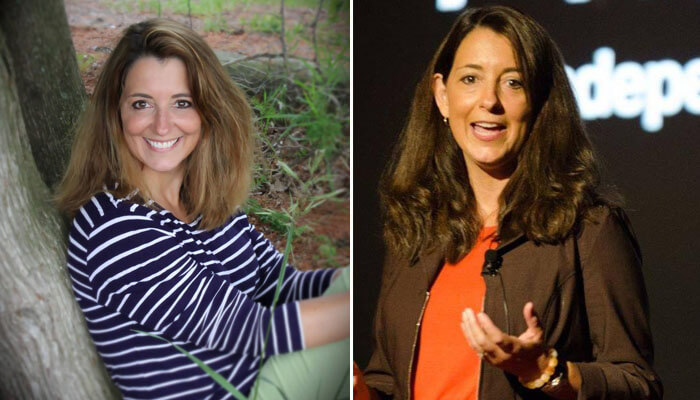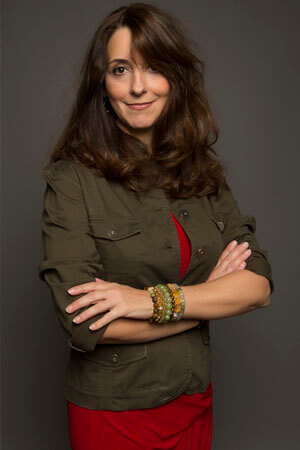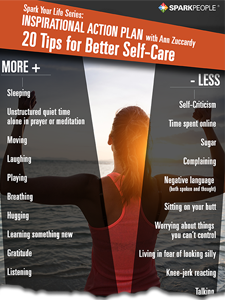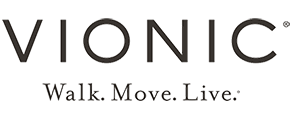 Presents
Presents
 Presents
Presents
Inspirational women are all around us, teaching, motivating and leading others by example through the way they live their lives and inspire others. The Spark Your Life Series connects you to thought-provoking female leaders whose stories can help you achieve life balance, a health and fitness goal or a better state of mind.

This month, we talked to Ann Zuccardy, keynote speaker and accidental neurologist, about how to inspire your way to mental health and creative freedom. Click here for 20 ways to add better self-care to your life!
 About Ann
About AnnA fall in a German bathtub in 2011 dramatically changed Ann Zuccardy's life. Using the ingenuity she discovered after sustaining a brain injury from the fall, along with three decades as a corporate communicator, social media marketing expert and teacher, Ann challenges conventional ideas about intelligence, self-care and creativity.
After her first TEDx talk in 2013, "How a Brain Injury Made Me Smarter," Ann discovered a new passion for innovation, humor and its impact on our brains, and resilience in the face of change—so much, in fact, that she now speaks professionally on the subjects.
In her second TEDx talk, "How Being Unsafe Makes You Smarter," Ann identified what she calls the "safe unsafe" (challenging personal boundaries to improve brain health). Ann believes that as we age, our brains can become complacent and it's only by exposing ourselves to novelty that we grow and flourish.
In 2016, Ann decided it was time to pursue her own "safe unsafe"—a 33-year-old dream to earn her master's degree. She enrolled in graduate school full-time to earn her MA in English with a focus on creative non-fiction.
Ann splits her time between Vermont and New York City. When she's not speaking or studying, she enjoys photography, gardening, hiking, hula hooping, traveling to little-known places, knitting and spending time with her rescue dog, Jackson. Ann is the mother of a 23-year old daughter and two step-daughters, all of whom she is very proud.
You were a corporate communicator before your accident, and now you give keynote speeches on intelligence, self-care and creativity. What are the similarities? What are the differences?
Before my accident, I had different ideas about what intelligence, self-care and creativity meant. I measured intelligence by my accomplishments (job promotions and raises; external professional and educational acknowledgement; what others thought of me; and how I measured my progress against other people). Self-care meant getting a pedicure or a massage every now and then. It was a luxury, not a ritual. Creativity was something I took for granted. I believed creativity was about my ability to "do" interesting things.
After my accident, my definitions changed drastically. Intelligence became about my desire to learn and my willingness to look silly in the process. Curiosity became more a measure of intelligence than remembering facts. Self-care became about getting enough sleep, knowing when to say "no," and becoming assertive about my physical and mental needs. It literally took a whack on the head for me to understand that saying about not being able to take care of anyone else until you take care of yourself.
Also, I learned that creativity is about much more than producing art or music. We all have innate creative talents, but we lose touch with them as we age. After my brain injury, I had to figure out new ways of doing things, almost like a child, which sometimes meant looking a little silly. Without even realizing it, I was using my creativity to create what they call "compensatory strategies" (ways to do things I could no longer do as a result of my injury). Now, I'm committed to helping others discover their own abilities to create and innovate in life and in business—without a brain injury.
During your rehab, you thought, "How can I do the things I love in a way that works for me?" How does that translate to real life?
I'm one of those people who has never believed that I am restricted by money, age, gender or education. If I find something I want to do, but there's a roadblock (say, money), I try to figure out how I could earn the money, barter or get to do the thing I want without paying full price. You have to be reasonable, though. I would love to be a gymnast, but I'm tall, middle-aged and have no sense of balance, so even with a lot of creativity, that's probably not the best use of my time.
Pay attention to how others are doing the things you want to do. Don't be afraid to brainstorm, dream (seriously, I get a lot of answers to my questions in dreams) or talk to people who are experts at what you love. People usually love to share their expertise!
What is the first question you should ask yourself when challenged with any sort of limitation?
I'm human. Typically, if something seems like it might be too hard, I try to talk myself out of it. Then I say, "What are the pros and cons of this challenge?" Usually I make a list and if the pros outweigh the cons, I muster up my inner badass (some days she's lazy and some days she's Superwoman) and get on with the challenge at hand.
What advice can you give someone trying to deal with a drastic life change?
Two words: self care. Gentleness and compassion for yourself should be your top priorities when dealing with change. Time spent in meditation, prayer, yoga, mindfulness or whatever practices work for you are shown to improve overall long-term brain health and help to quiet the "noise" of fear and anxiety that can accompany big changes. I meditate and pray daily. You don't need to spend hours doing these things; 10 minutes a day has shown to be beneficial.
Find the people who don't judge you—those you can be yourself around. Spending more time with supportive people and less time around those who drain your energy is a big part of self-care. Don't isolate yourself.
I'd also advise laughter. They say it's the best medicine and science now backs this up. There is a whole field of study called therapeutic humor, and I am often asked to do workshops and talks on the impact of humor on brain health and learning. Lastly, don't be afraid to ask for help. I went through major depression after my injury. I might not be here today if I hadn't asked for help. Mental health professionals, spiritual advisors, friends, family...you need them when you are dealing with big changes!
What would you tell someone who thinks he or she cannot change?
I'd show them the science that says otherwise. Up until about 30 years ago, scientists believed that once we reached a certain age, our brains could no longer change. Now we know that our brains are "plastic." The term "neuroplasticity" means that throughout your lifetime, until the day you die, you have the ability to think differently and create new, neural pathways. I'd recommend starting with a tiny change to build your confidence, then you can work up to bigger changes.
How would you recommend someone go about getting out of his or her comfort zone?
I just started my graduate degree in English at age 54—that's pretty uncomfortable. But you don't have to do "big" things to get out of your comfort zone! You can do little things every day. And the good news is, the more you do them, the more you create new neural connections and increase creativity and brain health. For example, try brushing your teeth with your non-dominant hand. Eat or cook a new dish you've never tried. Listen to a type of music you've never paid attention to. When you've tried a few small things, you could take bigger steps such as learning a new language, trying a new sport or taking music lessons. Get creative. Even driving a new route to work is good for clearing out mental cobwebs.
Who inspires you?
My best friends and colleagues. I read once that you become like the five people you spend the most time with. I think of it like playing tennis. When I play with people who are more skilled at the game than I am, I play better. That's how I see life. I try to surround myself with friends and colleagues who are most like what I want to be (spiritually, professionally and intellectually), but just a bit more masterful, because they inspire me to be better. I play a better game when I'm with people who are better at the game I want to play.
My parents also inspire me. They raised three pretty cool kids and they've been married 56 years. They taught their children humor, creativity and resilience. I would not have been able to recover from my brain injury the way I did without those skills.
 Get Your Action Plan
Get Your Action PlanLearn how to master self-care with advice from Ann Zuccardy.
Click here for 20 ways to add better self-care to your life!

About Vionic Shoes
Feet were designed to walk on soft, natural elements like soil and sand, not the hard, flat man-made surfaces that make up so much of our modern world. Vionic shoes hug your arches like a natural footprint, giving you all-day support and promoting a more active lifestyle. Many Vionic shoes, sandals and orthotic shoe inserts have earned the APMA Seal of Acceptance, which certifies they are beneficial in promoting foot health. For additional information about Vionic, please visit VionicShoes.com.
